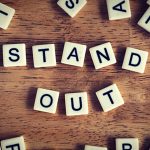NAHC Members Prepare to Survive and Thrive in Changing Home Health/Hospice Landscape
Last week, NAHC held its annual conference in Seattle with leaders across the country and the spectrum of home-based care converging to talk about some the most critical issues and opportunities facing our industries. Here’s our take on what you need to know from the conference:
- PDGM readiness, Part 1 – As January 2020 looms, the forthcoming PDGM final ruling and rollout continues to be at the forefront for most home health providers. At July’s Financial Managers Conference, there was a steady ripple of near panic among attendees scrambling to get their arms around implications. However, at this meeting, many provider attendees seem fairly confident in their immediate term plans and the ability of EMRs to meet their needs. But, concerns still linger for January. Several consultants shared that they’re still booking PDGM readiness assessments through November and December, far too late to be ready for January.
- PDGM readiness, Part 2 – To date, focus on PDGM prep has largely been on financial implications, including anticipated staffing ratios. Savvy providers are shifting their focus to preparing remaining staff for this intense change. Thinking through the process, training steps and messaging for staff takes time. And, it can be intimidating to take on when we still don’t know the full implications of the final rule. But, don’t put this critical work off until you have all the answers. You could damage trust, fuel further turnover and risk care quality. And, no one wants that.
Instead, look back to your brand differentiators, what sets you apart as a provider. Look at how you can amplify your positioning, internally and externally. Use those differentiators in your messaging and training to demonstrate preparedness and deepen trust. Prepare a message map outlining how the implications across all impacted audiences and development accordingly. In particular, help your referrers understand what you need from them for accurate and thorough diagnosis and comorbidity coding under PDGM to best serve their patients.
- Experience matters – The care experiences of patients and families received increased attention at this year’s conference. Several high-quality presentations, including three by the Transcend team, highlighted a looming caregiver crisis and offered actionable tips for aligning and amplifying experience. As Cooper Linton of Duke HomeCare & Hospice put it, “The person taking out our trash gets more training than we give caregivers. Yet, they have the single greatest impact on our care and outcomes than our own staff.”
More and more, family caregivers need support. They’re hungry for it. Organizations that offer robust support and education services for patients and families, in line with their unique differentiators, will seize a competitive advantage through change. Could your company offer this kind of value to consumers?
- New competition or new revenue centers? – Speaking of the needs of patients and families, consumer-centric innovations in technology were buzzed about throughout the conference. Wearable tech companies showcased their emerging and increasingly sleek offerings, supported by more data and case studies than ever before. The entry of companies like Amazon, Best Buy and Walmart, with their deep wallets, into the world of post-acute care holds the promise of tremendous innovation. Medicare Advantage opportunities should only speed the entry of new product and services providers as more is known about how these offerings improve outcomes and reduce costs.
Does your strategic plan embrace technology and other potentially disrupting forces? If not, it’s definitely time for an update. Some providers are finding technology as an excellent source for new revenue that also can boost family caregiver effectiveness and HH/CAHPS scores.
- Drowning in data – Thanks to EMRs and other new platforms, more data exists now than ever before to inform performance, identify opportunities and increase differentiation among providers (see our previous blog post about the importance of differentiation with Medicare Advantage payers). Yet, organizations are struggling to interpret what all this data means. A few organizations are building out their own internal analytics teams, similar to what Fortune 500 companies possess. Others are looking to platform suppliers or consultants for interpretation and analysis. Regardless of the path, make 2020 the year you get serious about data, align it with your strategic plan to suss out what data really matters from the noise, and separate essential day-to-day performance data from the long-term intel vital to realizing your strategic plan.
- Getting serious about retention – From the keynotes to the education sessions to the coffee breaks, conversations about retention and recruitment were everywhere throughout the conference. Organizations seem to be getting serious but aren’t always sure what that should look like. Compensation continues to be the primary lever organizations are pulling. Salary studies and incentive strategies are popular research tools. But, there are many other tools organizations can use to turn around turnover numbers. Look back on your positioning and points of differentiation. How are you amplifying those differentiators through your internal communication, review and development processes?
Patient-centric and employee-empowered organizations that are marketing their differentiators internally and externally are the ones best able to withstand competition. Take for example Northern Illinois Hospice. Through differentiation, they’ve been able to spurn competition, retain staff, increase referrals and deepen patient and family engagement over the past four years.
One of our favorite attributes of NAHC and its membership is how welcoming they are to fresh perspectives. Openness and receptivity are foundational to innovation, and innovation is essential to survival in the face of change. The keynote speaker encouraged attendees to seek out reverse mentors, folks of different generations or backgrounds who can open your eyes to new ideas or points of view. If you’d like a fresh perspective or simply want to talk about what’s going on in our industry, reach out to us at smassey@r-p.com or sjohnston@r-p.com.










